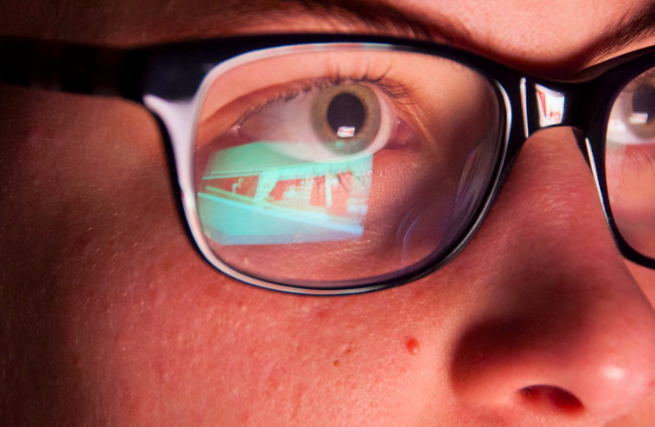Check out Elephant’s Continually-updating Coronavirus Diary. ~ Waylon
~
Various phases of COVID-19 have centred around blaming “the media.”
I’ve seen countless articles shaming and blaming media outlets, usually for creating “panic,” “hysteria,” or “chaos.” I spent 10 years of my professional life working in the illustrious and mainstream Big Media. I was employed by, or contracted to, publications and organizations that would be familiar to both our collective ears and our collective eyes.
Here’s what it was like to work in Big Media: pretty much more or less like your job.
Every day, I put on my best professional clothes, and I went to work where my job was to be productive, to make the right contacts, to achieve professional goals set out by my boss and their boss and their boss’s boss.
That’s what you do every day too, isn’t it?
I’ve subsequently shifted professions, but those same daily goals still apply in my current profession, (although I am now the boss). I’m not the victim of my former profession, but nor are any of us the victim of it at the present moment.
The media is like any other business: it is in the business of creating a product and hoping consumers engage.
That’s no different than Clorox or Lysol or the toilet paper companies, which are instead the heroes of COVID-19. Same sh*t, different pile.
In this case, the paper and sanitizing companies got lucky and “the media” did not. These are all businesses, not actually different from one another. Yet “the media” has become the most vilified profession in America.
We collectively forget what it would be like to live in a world without the media. When we had no warning of hurricanes or disease, no information to share, and no access to information from which to form an opinion. Many among us have become highly opinionated about public health policies in the first few months of COVID-19, and for the privilege of having enough detail to even form an opinion, we need to thank the media.
But if we cannot, let’s try to stop blaming and vilifying them and consider the following:
1. If we believe “the media” is at fault, then we need to make a personal choice to stop consuming media. Every article we personally click contributes to the problem.
2. If we believe the issue is “media hype,” then we can do our part to stop buying the product. “The product” is our attention.
3. If we believe it is a form of “mind control,” then we can stop looking at it, stop hearing it, and stop watching it. Check articles once a day or even once a week.
4. If we believe it’s a “conspiracy,” then we can stop participating. For the record, there was no conspiracy that I was ever personally aware of at any of the media companies I ever worked at to manipulate or control consumers. There was no political mandate at play, no government conspiracy, and no global agenda ever present at any boardroom or in any conference call.
Because here’s the truth about the media:
The business of the media is an attempt to get our attention. Media companies get paid when they have our attention: click-throughs and consumption are what pay the staff.
This, by the way, is absolutely no different than 99.9 percent of other businesses in North America.
Just like any other business we don’t want to support, rather than ranting about it on Facebook, realize that the more we personally give to the media, the less we have earned the right to blame them.
We can’t blame Doritos for making people fat if we ourselves are buying them.
We are all consumers this week and our choices aren’t about “others:” they are about us.
Walk your talk.
If you want “the media” to stop, be part of stopping. Here’s how:
1. Listen only to press releases from your local public health agency. I can’t speak for other jurisdictions in North America, but mine has a streamed press briefing every day at 3:30 p.m. Check your local health authority for information.
2. Stop sharing articles on Facebook and Twitter. If we are blaming “the media” and sharing their content with our network, we are saying one thing but doing another. Share photos of dogs and children and regular life rather than content produced by “the media.”
3. Support independent media. Organizations like Elephant Journal have no corporate hand. Give these articles your eyeballs and attention instead.
4. Consider how necessary information is to your daily life or choices. Although it suddenly seems important to hold an opinion about COVID-19, unless your job is in health, public health, epidemiology, or related, we may need a new perspective.
Public health officials do this work professionally and have teams of people working on COVID-19. Do we need to have the latest information every hour in order to function on a daily basis?
5. Consider being thankful to the media. They are our ally in preparation and dissemination. Think about living in 1918, the last time a pandemic swept through the world, and determine what you would realistically prefer. At that point, “the media” was telegrams and a few newspapers. If you can see value in the current iteration of media, extend some gratitude, even if silent, for their efforts. Gratitude diffuses anger.
6. Contemplate how much your attention means in a broader scope. We aren’t experts in anything in a week, no matter how many articles we absorb or how much news we suck in. Does reading 25 articles a day for seven days or or watching two hours of TV or arguing about COVID-19 on Facebook add to the long-term value of our life, our profession, or our friendships? Think about what it would be like to turn your attention elsewhere and instead, simply agree to follow the advice and practices advised by our local public health agencies. Consider what it would be like to cease holding personal opinions or giving your attention over to this as a part-time job?
“The media” are not to blame if we are personally absorbing it: we are.
Remember that “the media” are people who go to work and do their job. For the most part, at relatively low salaries. Few writers are getting rich, for example. Pause and consider that there are humans behind every article you read and program you watch.
Turn off your TV and step away from your phone.
~
~







Read 2 comments and reply